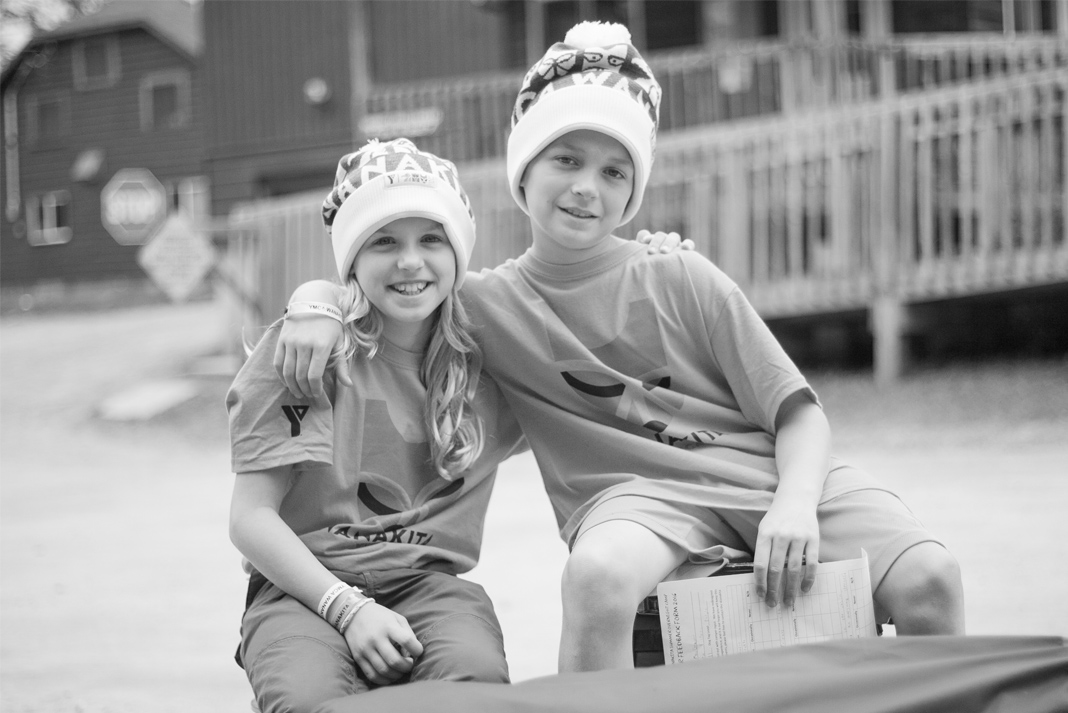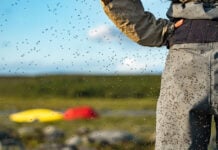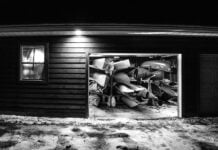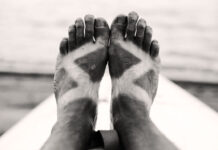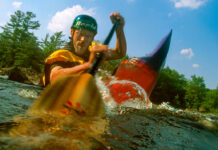Before I found the official notice in my inbox, I saw my daughter’s Instagram story. A collage of six photos, all girls her age, nine of them, her cabin group. In the photos, they are sitting on the swim dock shoulder to shoulder. They are in massage circles, arm-in-arm on the playing field and piggybacking. They are elbow to elbow on long benches in the dining hall with 130 more boys and girls who are more likely to abide by the five-second rule than they are any strict government policies on physical distancing. It would be an unenforceable rule and incontestably counterculture to what makes summer camp awesome. And so, this will be the first summer ever in its 67-year history that Kate’s summer camp will not come alive with campers, councilors and campfire songs.
It’s not just overnight camps that are canceled this summer, of course. The outdoor industry, as we know it, has been mothballed, at least for the spring. Health experts agree social distancing is best from a not-spreading-the-virus perspective. But there are going to be unforeseeable long-term emotional and cultural consequences. How we interact in the outdoors may never be the same.
My dad was years ahead of his time. He was a born and raised social distancer. And he passed this down to my brother and me. He was a truck driver and a mechanic, a hunter and a fisherman. He could put anything back together and skin a buck, but he wasn’t a hugger.
“I love you son,” was implied and understood with an extra jug of windshield washer fluid and a stoic nod as I drove off to a four-year outdoor recreation university degree program to start my new life as a born-again, albeit awkward, hugger.
Having spent 25 years living among paddlers, skiers, mountain bikers, climbers and hikers, I now appreciate the physical connection and closeness of our friendships. It is part of the culture and one of the unspoken and underappreciated benefits of the outdoor community.
Research suggests being close together triggers the release of the feel-good hormone, oxytocin. Oxytocin is good for us, and levels rise when we hug, touch or sit around campfires well within the now recommended six-foot social distancing guidelines.
Our pre-COVID touchy-feely hippy outdoorsy cultural normal enhances our psychological resources, such as optimism, self-esteem and mastery. We typically hold more favorable expectations about the future, have a higher overall evaluation of self-worth and believe we can determine our behavior and bring about desired outcomes. Every summer camp and outdoor program website promises this. But they often attribute it to their 1,000 pine-scented acres, climbing walls, guitar lessons, skits, kayaking, polar bear dips and wilderness canoe trips.
Maybe.
Or maybe it’s not the activities or nature at all. Maybe it’s as simple as all the human interactions happening within a close physical distance. Judging by the photos Kate shares on Instagram, it probably is. It’s probably good her camp is canceled. It wouldn’t be the same six feet apart.
Also canceled this summer are the outdoor industry trade shows. For the first time in the history of this magazine, our editors will not be traveling to convention centers to preview next year’s paddling and camping gear.
That’s okay; I don’t think we’re ready either. Now that we can’t hug hello or even shake hands, it’s not just the kids who need to find a new normal. I don’t think we’re emotionally ready for the toe-heel-tap, or worse, the socially responsibly but so ’90s finger pistol guns.
It’s too soon. It’s going to take a while to go back a generation or two and remember how to say I love you without a hug.
Scott MacGregor is the founder and publisher of Paddling Magazine. At the time of printing, the province of Ontario has prohibited all overnight camps from opening this summer.
Popular camp slogan: WHAT ARE YOU DOING THIS SUMMER? Campers: AHH… NOTHING. | Photo: Scott MacGregor


